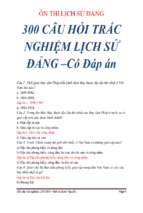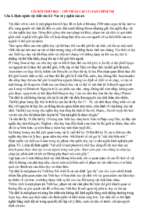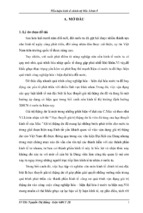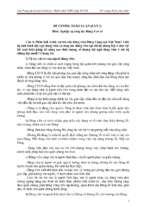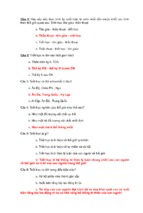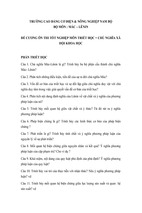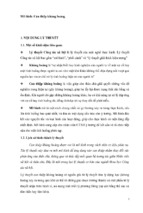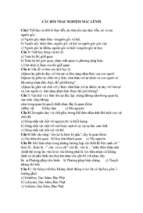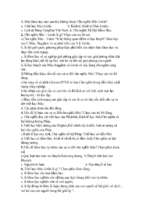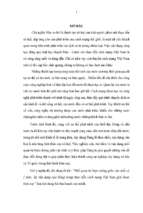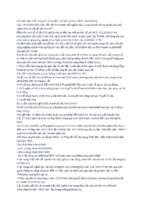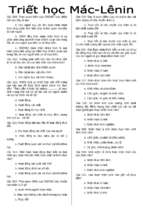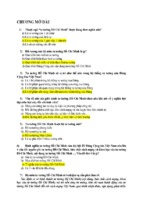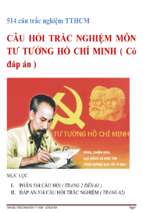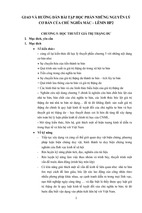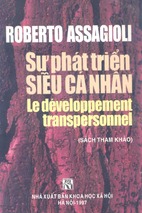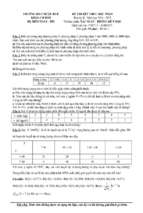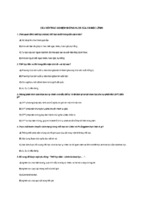The Anti-Intellectual Presidency
This page intentionally left blank
THE ANTIINTELLECTUAL
PRESIDENCY
The Decline of
Presidential Rhetoric from
George Washington to
George W. Bush
.
1
2008
1
Oxford University Press, Inc., publishes works that further
Oxford University’s objective of excellence
in research, scholarship, and education.
Oxford New York
Auckland Cape Town Dar es Salaam Hong Kong Karachi
Kuala Lumpur Madrid Melbourne Mexico City Nairobi
New Delhi Shanghai Taipei Toronto
With offices in
Argentina Austria Brazil Chile Czech Republic France Greece
Guatemala Hungary Italy Japan Poland Portugal Singapore
South Korea Switzerland Thailand Turkey Ukraine Vietnam
Copyright © 2008 by Oxford University Press, Inc.
Published by Oxford University Press, Inc.
198 Madison Avenue, New York, New York
www.oup.com
Oxford is a registered trademark of Oxford University Press
All rights reserved. No part of this publication may be reproduced,
stored in a retrieval system, or transmitted, in any form or by any means,
electronic, mechanical, photocopying, recording, or otherwise,
without the prior permission of Oxford University Press.
Library of Congress Cataloging-in-Publication Data
Lim, Elvin T., 1976–
The anti-intellectual presidency : the decline of presidential rhetoric
from George Washington to George W. Bush / Elvin T. Lim.
p. cm.
Includes bibliographical references and index.
ISBN 978-0-19-534264-2
1. Presidents—United States—History. 2. Presidents—United States—Language—
History. 3. Presidents—United States—Intellectual life—History. 4. Rhetoric—Political
aspects—United States—History. 5. Communication in politics—United States—
History. 6. Political oratory—United States—History. 7. United States—Politics
and government. 8. United States—Intellectual life. I. Title.
E176.1.L457 2008
973.09'9—dc22
2007050230
9 8 7 6 5 4 3 2 1
Printed in the United States of America
on acid-free paper
To my parents
This page intentionally left blank
Everything should be made as simple
as possible, but no simpler.
—Albert Einstein
This page intentionally left blank
The state of presidential rhetoric today has taken a nosedive from our founding era. The influential journalist and satirist H. L. Mencken once wrote of
President Warren Harding’s inaugural address: “It reminds me of a string
of wet sponges; it reminds me of tattered washing on the line; it reminds
me of stale bean soup, of college yells, of dogs barking idiotically through
endless nights. It is so bad that a sort of grandeur creeps into it.”1 Mencken’s
assessment would not have been too far off in describing the speeches of
Harding’s successors in the White House, but his complaint also addresses
a deeper problem with an ancient pedigree. Our society’s disquiet toward
presidential rhetoric is as old as Plato’s belief that “oratory is a spurious
counterfeit of a branch of the art of government,” and it is as entrenched
as the conventional diagnosis that presidential leadership has become too
“rhetorical.”2 There is widespread sentiment today that the pathologies of
modern presidential government derive from the loquaciousness of the
office and that if presidents spent less time talking and campaigning, they
would spend more time deliberating and governing. But the Greeks were
not straightforwardly opposed to rhetoric. After all, their arguments were
put forth in Socratic dialogues. It was a particular type of rhetoric that
Plato decried, the type that was used to pander to and seduce the people.
Already at the inception of rhetorical studies, Plato had distinguished “mere
rhetoric”—words crafted to equivocate, flatter, or seduce—and meaningful
x
P R E FAC E
rhetoric, which facilitates rational disputation, a distinction that is at the
heart of this book’s (reconceived) critique of the contemporary presidency.
My thesis is this: the problem of presidential rhetoric in our time resides
not in its quantity, but in its quality. The problem is not that “going public”
has become a routine presidential practice; it is that while presidents talk
a lot, they say very little that contributes constructively to public deliberation.3 Our problem is the anti-intellectual presidency, not the rhetorical
presidency.
Although presidential anti-intellectualism has become a defining
characteristic of the contemporary presidency, we have been slow to call
it as we see it. Perhaps scholars have assumed a synthetic link between
the quantity and quality of presidential rhetoric and have focused on the
former, assuming that the pressure to speechify has contributed to or is the
same pressure that has given presidents the incentive to go anti-intellectual.
But of course they are distinct. On the demand side of citizen-auditors, we
do not lower our expectations about the substance and quality of what is
communicated to us even as we insist, perhaps unreasonably, that presidents have something to say about almost everything. On the supply side,
presidents today have an extensive speechwriting apparatus at their disposal. It is unlikely that problematic catchphrases such as the “axis of evil”
or the “war on terror” emerged inadvertently as a result of overwhelming
presidential speech loads.
Perhaps we have resisted making the charge of presidential antiintellectualism because it is difficult not to sound elitist when laying the
charge and even more difficult to prove it. Or perhaps anti-intellectualism
creeps up on one. Simplifying rhetoric to make it more accessible to the average citizen is a laudable enterprise, but at some point simplification becomes
oversimplification, and the line between the two is often difficult to define,
especially in a polity committed to democracy. But whatever the reason, I
suspect that the scholarly animus toward the rhetorical presidency would be
significantly tempered if contemporary presidents spoke more like Washington and Jefferson with greater frequency and less like Ford and Carter with
equal frequency. If this intuition sounds correct, then what really bothers us
about contemporary presidential rhetoric is not how much is said, but what
is being said. Rather than harp on the problem of the rhetorical presidency,
this book addresses presidential anti-intellectualism head on. This is a critical
enterprise because much that is wrong with American politics today begins
with the words that emanate from the nation’s highest officeholder and
principal spokesperson. When presidents lie to us or mislead us, when they
P R E FAC E
pander to us or seduce us with their words, when they equivocate and try to
be all things to all people, or when they divide us with wedge issues, they do
so with an arsenal of anti-intellectual tricks, with rhetoric that is linguistically
simplistic, reliant on platitudes or partisan slogans, short on argument, and
long on emotive and human-interest appeals.
Let me state upfront what I am not addressing in this book as a means of
clarifying what I am addressing. First, I am concerned with anti-intellectualism
only in the political and not in the philosophical sense. I am not concerned
with Kierkegaard’s doctrine of anti-rationalism, the view that moral truth
cannot be derived from an objective judgment of right and wrong, nor with
Hume’s theory of knowledge that none of our ideas are analytically prior
but all are the result of sensational “impressions,” nor with Henri Bergson’s
theory that it is more the intuition and less the intellect that is the driving
force behind human thought, nor with Nietzsche’s and Freud’s theories of
unconscious motivation in human decisions. I am interested in the political uses and consequences of anti-intellectualism as manifested in American
presidential rhetoric.
Second, this book is not concerned with unintelligence but with antiintellectualism. Intelligence, as I argue in chapter 2, pertains to the first-order
functions of the mind which grasps, manipulates, adjusts, and so forth; intellect evaluates these activities and involves the activities of the mind’s eye on
itself, such as in theorizing, criticizing, pondering, and so forth. Apart from
the conspicuous exceptions from the patrician era, it appears that most presidents were not, especially when we think of the nineteenth-century “darkhorse” candidates, been exceptionally intelligent men because the electoral
process (and in particular the Democratic Party’s two-thirds rule for nominating its presidential candidates) selected not for intelligence, but for bland
standard-bearers who were politically inoffensive enough to garner votes at
the nomination convention. In the twentieth century, a first-past-the-post
two-party system militated against the selection of a person of exceptional
qualities in favor of a candidate that could appeal to the median voter. Thus,
Harding was described as a “second-rate provincial” and Franklin Roosevelt
as “a second class intellect.”4 What is noteworthy for my purposes, however,
is that despite their alleged mediocrity, most presidents in the past preferred
to appear less, not more, intellectually inclined than they actually were. And
they pursued this strategy even though they had no lack of access to both
intellectuals and very intelligent aides who could have been easily deployed
to cultivate an image otherwise.5 A president who assiduously adopts, with
the aid of an extensive and professional staff, an anti-intellectual posture
xi
xii
P R E FAC E
cannot be, at least straightforwardly, unintelligent. Indeed, it is the paradoxical fact that the anti-intellectual presidency qua institution is composed of a
collectivity (and indeed, an increasing co-optation) of experts that makes my
story particularly poignant.
Because anti-intellectualism denigrates the intellect and intellectuals
rather than intelligence, I have used “dumbing down” sparingly in this book
even though the phrase may appear to be an obvious signifier of the phenomenon I am tracking. Dumbing down, which I approximately understand to
be some excessive degree of linguistic simplification, pejoratively supposes a
“dumbness” or unintelligence presumed to be the state of the median auditor-citizen. By appropriating the term dumbing down, we implicitly endorse
the idea that citizens are unintelligent and presidents are merely calibrating their messages as such. I reject the premise and therefore the conclusion of this idea. Citizens are not dumb, and they deserve more, not less,
information from presidents so that they are equipped to make competent
civic decisions. Though he will often be the first to make this charge, it is
the anti-intellectualist who underestimates citizens and who assumes that
citizens cannot digest anything more than platitudes and simplistic slogans.
Further, dumbing down does not fully capture the scope of the wily antiintellectualist’s tactics. Linguistic simplification is typically a major component of going anti-intellectual, but the former is neither necessary nor
sufficient for the latter. For instance, a major anti-intellectualist strategy is
to fudge and to equivocate by the use of platitudes and abstract concepts.
This strategy is not accurately described as dumbing down since platitudes
can be both trivially true and profound; but they are anti-intellectual in the
rejection of precise argument as a basis for deliberation and rational disputation. For example, some defenders of Ronald Reagan’s soaring rhetoric have
contended that his speeches, in appealing to the mythic chords of collective
national identity, were not dumbed down, but recondite and even sublime.6
In chapter 4, I will suggest, with the different and more precise locution of
anti-intellectualism, exactly what is wrong with and anti-intellectual about
an excessive reliance on inspirational platitudes.
Third, my purpose is not to provide an instruction manual for presidential leadership in the way Richard Neustadt’s Presidential Power was written for John Kennedy.7 I do not expect presidents to voluntarily eschew the
anti-intellectual path of least resistance; only citizens can force them to do
so. I also reject institutional partisanship—a partiality toward the prospects
and accretion of presidential power—because the view from behind the
president’s shoulder justifies and anticipates the fulfillment of presidential
P R E FAC E
priorities, often at the expense of other branches and institutions of American government.8 What works, rhetorically or otherwise, for the president
may not be best for the country. So my aim is not to assess the marginal
political gain to the president of “going public”—a subject that has already
produced an extensive and illustrious literature—but to rearticulate the systemic costs of the rhetorical presidency, which is better read, I will argue, as
the “anti-intellectual presidency.” As such, this book is as much about the
presidency as it is about American democracy, for in diagnosing the quality
of presidential discourse, I am also offering a barometer for the state of presidential leadership and the health of American democracy.
There are three other prefatory points I want to make. First, throughout
this book, I will use masculine pronouns to refer to presidents because, as of
2007 (when this is being written), there has not been a female president in
American history. My second point pertains to sources. So as not to clutter the
text with too many cumbersome notes, I have indicated only the titles, dates,
and the Public Papers in which the speeches I have quoted in the twentieth century and beyond are collected, and not the full publishers’ and page citations.
This is all the information a reader needs to search the solid and accessible digital record of the Public Papers of the presidents on the Internet and to retrieve
the relevant full-page documents. In particular, I recommend the Web site of
the American Presidency Project run by John Woolley and Gerhard Peters at
http://www.presidency.ucsb.edu/ws, the University of Michigan digital library
at http://quod.lib.umich.edu/p/ppotpus, and for newly minted presidential
documents, the GPO Web site at http://www.gpoaccess.gov/wcomp/index.html
provides a weekly compilation of presidential documents (all accessed on
8/28/2007).
Today, more than ever, it is imperative that we attend to the substance of
presidential rhetoric as we observe the expansion of the rhetorical presidency
into the rhetorical executive. Not only is over one-third of the contemporary
White House staff engaged in some aspect of public relations or political
communication, it is now routine practice for a president to deploy and coordinate his cabinet and staff to do his rhetorical bidding.9 The expectations for
public officials to “go public” is now so heightened that for the first time in
the history of the office, James L. Pavitt, chief of the CIA’s clandestine service,
was called to testify in a public hearing before the 9/11 Commission. This
expansion of the rhetorical executive was such a break from precedent that
one of the commissioners, former senator Bob Kerrey (D-NE), observed that
his “stomach’s been turning as Mr. Pavitt’s been answering questions here this
afternoon.”10 Yet, more words do not necessarily mean more answers, as the
xiii
xiv
P R E FAC E
regular deployment of top administration officials to toe the White House
“line of the day” evidences. My broadest aim in this book is to invite readers
to look more closely at the quality of presidential rhetoric and where it has
fallen short of the purpose it should serve in a democracy. We must not rest
content with relegating presidential rhetoric to “mere rhetoric,” because our
inattention to mere rhetoric, or our failure to pierce through it, can and has
landed us into trouble.
The research for this book was generously funded by the Potter Foundation,
the University of Oxford’s Andrew Mellow Fund, the Franklin and Eleanor
Roosevelt Institute, the George Bush Presidential Library Foundation, the
American Political Science Association’s Presidency Research Fellowship, and
the Faculty Development Fellowship at the University of Tulsa. I would like
to thank the late Phillip J. Stone of Harvard University for allowing me to use
the General Inquirer to analyze the data presented in chapter 4. I am grateful to the 42 former presidential speechwriters I interviewed for their time,
candor, and intellectual engagement. I would like to thank the archivists and
staffs at the Franklin D. Roosevelt Library, Jimmy Carter Library, George
Bush Presidential Library, Green Library and Hoover Institution Library at
Stanford University, Perry-Castañeda Library at the University of Texas at
Austin, Nuffield College Library, Social Studies Library, and Rothermere
American Institute at the University of Oxford, and Sterling Memorial
Library at Yale. I would also like to gratefully acknowledge my former colleagues at the University of Tulsa, who provided a supportive and intellectually stimulating environment for my research, and Dean Tom Benediktson,
who graciously granted me a semester off to write. Many thanks are also
due to David McBride, Brendan O’Neill, and Christine Dahlin at Oxford
University Press for holding my hand through the publishing process. I owe
an intellectual debt to Nigel Bowles, Roderick Hart, David Mayhew, Byron
xvi
AC K NOW L E D G M E N TS
Shafer, and Christopher Wlezien, senior colleagues and mentors who have
helped to shape and sharpen my thoughts. I am very grateful to Jeffrey Tulis,
whose work inaugurated a whole subfield in presidential studies and inspired
this book and who so kindly took time out to read and comment helpfully
on the manuscript. I am especially indebted to Stephen Skowronek, who
saw promise in this project before I saw it and nurtured it with insights
that helped me to clarify what I wanted to say in this book. Many thanks
are also due to Edward Biedermann, Jeff Hockett, Michael Mosher, Mana
Tahaie, and Nicholas Carnes for taking the time to read and comment on
various portions and previous iterations of this book, to Ronnie Farhat for
his research assistance, to Sonu Bedi for many productive and clarifying conversations, to Melvyn Lim and Ty Voliter, who helped me to resolve many
a software and computing issue and for their friendship, and to Ai-leen, for
always being there. All remaining errors are mine. I dedicate this book to my
parents, to whom I owe an eternal debt of gratitude and love.
1 The Problem of Presidential Rhetoric, 3
2 The Linguistic Simplification of Presidential Rhetoric, 19
3 The Anti-Intellectual Speechwriters, 40
4 The Substantive Impoverishment of Presidential Rhetoric, 54
5 Institutionalizing the Anti-Intellectual Presidency, 77
6 Indicting the Anti-Intellectual Presidency, 100
7 Reforming the Anti-Intellectual Presidency, 115
Appendix I
Appendix II
Appendix III
Appendix IV
The General Inquirer (GI ), 123
Definitions of General Inquirer Categories Used, 127
Annual Messages, 1790–2006, 129
Inaugural Addresses, 1789–2005, 135
xviii
C O N T E N TS
Appendix V Presidential Speechwriters Interviewed, 137
Appendix VI The Flesch Readability Score, 141
Notes, 143
Index, 175
The Anti-Intellectual Presidency
- Xem thêm -

